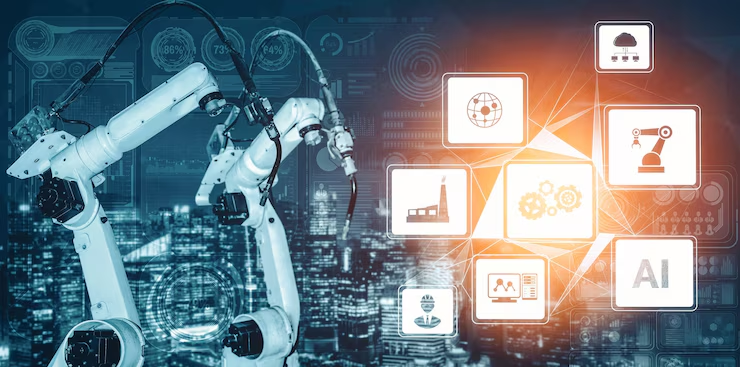By 2025, environmentally friendly solutions will become a major priority for industrial machinery and equipment. Both manufacturers and consumers are becoming more aware of sustainability, and this is reshaping production processes. With developing technologies and increasing environmental awareness, industrial machinery and equipment are also becoming more environmentally friendly, offering more efficient and sustainable solutions.
In this article, we will focus on the environmentally friendly innovations and sustainable solutions that will stand out in the machinery and equipment sector in 2025.
1. Increasing Energy-Efficient Machines
Energy efficiency remains a top priority for environmentally friendly industrial equipment. By 2025, machines will achieve higher performance with lower energy consumption. Innovative technologies will optimize machinery's energy consumption, reducing both environmental impact and operating costs.
Featured Innovations:
Low-energy-consumption motor technologies
Machines compatible with renewable energy systems
Smart energy management systems
2. Zero Waste and Recycling Technologies
The zero-waste principle is the fundamental approach that initiated the understanding of sustainability in industrial production. Industrial equipment is becoming more effective in minimizing and recycling waste. By 2025, machines will offer integrated solutions for reducing and recycling waste by utilizing the materials used in the most efficient way.
Featured Innovations:
Use of recyclable materials
Waste management and zero-waste systems
Innovative technologies for processing industrial waste
3. Environmentally Friendly Materials and Components
Machinery and equipment manufacturers are seeking alternative material solutions to meet the demand for environmentally friendly, biodegradable, or recyclable materials. By 2025, the use of environmentally friendly materials instead of plastics will increase further, and production processes will be designed to reduce carbon footprints.
Featured Innovations:
Innovative, environmentally friendly materials (e.g., bioplastics, recycled materials)
Energy-efficient and environmentally responsible components
Production materials to reduce carbon emissions
4. Water-Saving Systems
As water resources continue to dwindle globally, minimizing water consumption is becoming a critical factor for sustainable production. By 2025, industrial machinery and equipment will be equipped with systems that monitor and optimize water consumption. This will both save manufacturers water and minimize their environmental impact.
Featured Innovations:
Water recovery systems
Production processes that reduce water consumption
Smart water management technologies
5. Carbon Footprint Reduction
Industrial machinery and equipment are designed with the goal of reducing carbon emissions in their production processes. Machines that minimize their carbon footprint are crucial for a more environmentally friendly and sustainable industrial production. In 2025, new technologies and production methods will be introduced to minimize carbon emissions, particularly in the automotive and energy sectors.
Featured Innovations:
Low-emission machinery
Technologies that monitor carbon emissions
Zero-emission production lines
6. Smart Technologies and Data Analytics
Smart factories and production lines use advanced data analytics to monitor and optimize the environmental impact of machinery. By 2025, machinery and equipment will be equipped with smart sensors and data analytics, allowing them to monitor energy consumption and environmental impacts in real time. This will make production processes more environmentally friendly.
Featured Innovations:
Smart sensors and data monitoring systems
Software that optimizes energy and resource consumption
Industrial data analytics solutions
Conclusion
2025 will mark a major step forward in environmentally friendly solutions and sustainability in the machinery and industrial equipment sector. Trends such as energy efficiency, zero-waste systems, eco-friendly materials, and carbon footprint reduction will make industrial production processes more environmentally friendly. These innovations will not only protect the environment but also reduce costs for companies. By embracing these new trends, industry professionals can build a more sustainable future.


